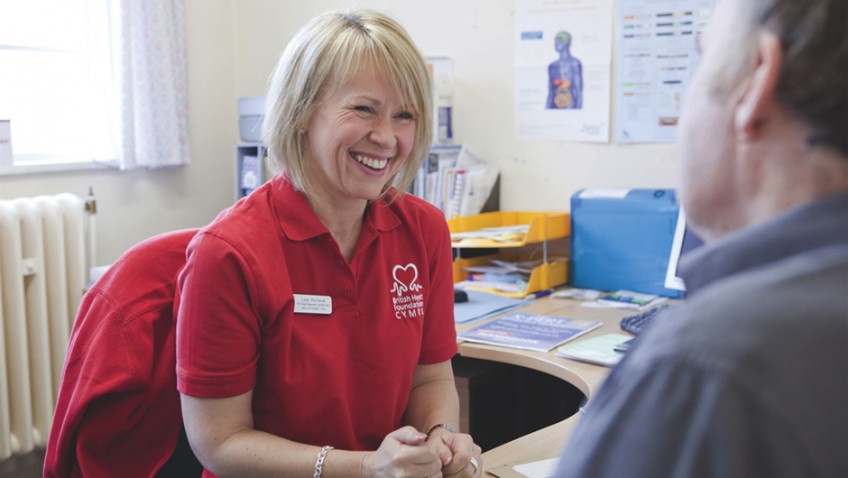February is heart health month and if you have already dressed up in red for the big day on the 5th you will already have taken part.
But the battle goes on. You may have seen the poignant advert on television where a little boy finds out that heart disease is heartless and you probably know of someone close to you who has been affected.
Every 3 minutes, someone in the UK is struck by a heart attack.
Around 30% of heart attacks are fatal.
Coronary heart disease (CHD) is the leading cause of death both in the UK and worldwide.
It’s responsible for more than 73,000 deaths in the UK each year. About 1 in 6 men and 1 in 10 women die from CHD.
In the UK, there are an estimated 2.3 million people living with CHD and around 2 million people affected by angina (the most common symptom of coronary heart disease).
CHD generally affects more men than women, although from the age of 50 the chances of developing the condition are similar for both sexes.
As well as angina (chest pain), the main symptoms of CHD are heart attacks and heart failure. However, not everyone has the same symptoms and some people may not have any before CHD is diagnosed.
CHD is sometimes called ischaemic heart disease.
The heart
The heart is a muscle about the size of your fist. It pumps blood around your body and beats approximately 70 times a minute. After the blood leaves the right side of the heart, it goes to your lungs where it picks up oxygen.
The oxygen-rich blood returns to your heart and is then pumped to the body’s organs through a network of arteries. The blood returns to your heart through veins before being pumped back to your lungs again. This process is called circulation.
The heart gets its own supply of blood from a network of blood vessels on the heart’s surface called coronary arteries.
Coronary heart disease is the term that describes what happens when your heart’s blood supply is blocked or interrupted by a build-up of fatty substances in the coronary arteries.
Over time, the walls of your arteries can become furred up with fatty deposits. This process is known as atherosclerosis and the fatty deposits are called atheroma.
Atherosclerosis can be caused by lifestyle factors and other conditions, such as:
- smoking
- high cholesterol
- high blood pressure (hypertension)
- diabetes
If your doctor feels you’re at risk of CHD, they may carry out a risk assessment. This involves asking about your medical and family history, your lifestyle and taking a blood test.
Treating coronary heart disease
Coronary heart disease can’t be cured but treatment can help manage the symptoms and reduce the chances of problems such as heart attacks.
Treatment can include lifestyle changes, such as regular exercise and stopping smoking, as well as medication and surgery.
Research
The British Heart Foundation is the biggest funder of cardiovascular research in the UK. They help scientists to undertake pioneering research into many different heart conditions, their diagnosis and treatment.
In the 1960s there were no known medicines to improve your life expectancy if you were diagnosed with heart failure.
Today 70 per cent of people survive a heart attack, but this means increasing numbers are living with a broken heart.
Dedicated to the fight against heart disease BHF are the UK’s number one heart charity, and through 50 years of funding cutting edge research they have already made a big difference to people’s lives.
But the landscape of heart disease is changing. More people survive a heart attack than ever before, and that combined with an ageing population means more people are now living with heart disease and need help.
As a result, BHF have been reviewing their strategic approach with the help of staff, supporters and stakeholders.
The new strategy gives powerful focus in the fight for every heartbeat, and will lead the fight against cardiovascular disease more effectively.
If you want to help join the fight this year go to www.bhf.org.uk/get-involved or visit your local Heart Foundation shop.





